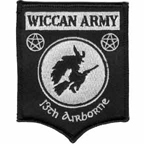Great website and topics, I just had to join in.
Jason said: “paganism presents a farmer’s religion…”
I agree with this, and since I’ve been interested more in hunter-gatherer lifeways than agro-ways, I’ve been grappling with this ever since I went to a few neo-pagan meetings years ago. The first was actually a “Goddess” group at full moon, and I came away feeling like they were quite disconnected from the actual land that they were sitting on. The whole thing was about imaginal journeying with drums, self-help psychology, and asking “the Goddess” for a new car, new job, new boyfriend. When the Moon rose above the horizon I pointed it out to them and they barely looked.
Well, I’m sure most groups are more in touch with nature than that and are better, but it made me find my own way alone. So I’ve been delving into my Celtic-Germanic and older European roots too, and I think it is a goldmine of animistic ways to relate to the land I live on.
One book I particularly like is “Elves, Wights, and Trolls,” by Kveldulf Gundarsson (iUniverse, Inc: New York, 2007), a Heathen collection of old folklore about relating to stones, rivers, waterfalls, hills, lakes, etc. as other-than-human people.
Since I reside in North America trying to do this has sometimes bothered me, as I don’t want to appropriate Native American worship or sacred places. But lately I’ve been investigating what anthropologists call "multivocality, " how one valley, for example, can have multiple simultaneous meanings for many different cultures or tribes. Each tribe respects the meanings, myths, stories, names, and sacred places of the other. Perhaps we Euro-Americans can be accomodated to share sacred place with First Peoples without using their specific sites. So far, cautiously, it has been working for me.
Pathfinder asks, does it matter that we try to find a primal animism from our own traditions? Yes, I think so. I believe it is possible, and absolutely needed if people are going to develop the kind of reciprocal, respectful relationship with a landscape that has sustained tribal people for untold millenia.


 But I mean it sincerely. I think the condition of the landbase tells us a lot about the sustainability of the religion/ethic/relationship of the people.
But I mean it sincerely. I think the condition of the landbase tells us a lot about the sustainability of the religion/ethic/relationship of the people.